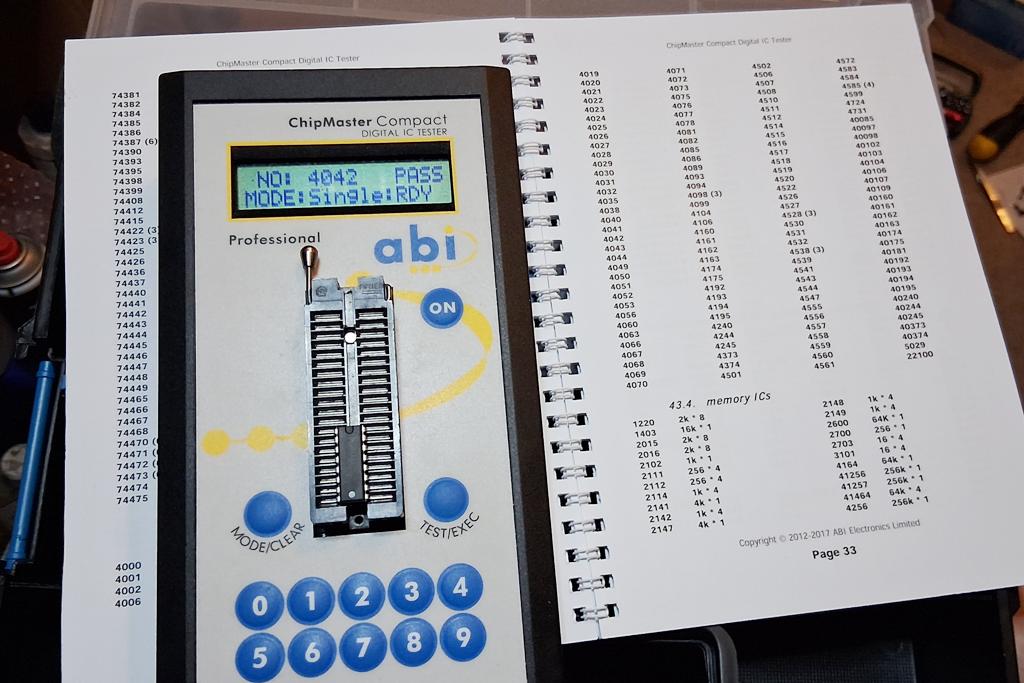Table of Contents
- Understanding the Role of a Game Manager Quarterback
- Key Characteristics That Define a Game Manager QB
- Strategies for Success: How Game Manager QBs Excel
- Building a Complementary Team Around a Game Manager QB
- Real-World Examples of Effective Game Manager Quarterbacks
- Q&A
- In Summary


Understanding the Role of a Game Manager Quarterback
A game manager quarterback typically excels by exhibiting strong decision-making skills and an acute understanding of the game’s rhythm. These quarterbacks aren’t necessarily known for their overpowering arm strength or astounding athleticism; instead, they focus on maintaining possession and optimizing offensive plays. They thrive in high-pressure situations and often serve as the reliable glue that holds the offense together, ensuring that others shine in scoring opportunities while minimizing mistakes.
Key attributes of a game manager quarterback include:
- Composure: Staying calm under pressure is essential. Game managers handle the clock effectively, know when to slow down the pace, and can facilitate a steady flow within the game.
- Accuracy: They prioritize making short, precise throws to keep the chains moving, often relying on quick reads rather than attempting risky deep throws.
- Leadership: Serving as the on-field leader, they inspire confidence in their teammates, resulting in cohesive unit performance and strategic execution.
Unlike traditional quarterbacks, game managers often work within a system that emphasizes a strong running game and a solid defense. This approach allows them to control the game flow, steering plays to maximize ball possession and minimize turnovers. For instance, their game strategy might include:
| Strategy Element | Description |
|---|---|
| Short Passes | Utilizing quick throws to gain small chunks of yardage and maintain momentum. |
| Clock Management | Strategically using the play clock and game clock to control possession. |
| Reading Defenses | Making quick assessments of defensive setups to optimize play calls. |
Key Characteristics That Define a Game Manager QB
Game manager quarterbacks bring a unique set of characteristics to the field, often leading their teams to victory with a strategic mindset rather than flamboyant talent. These players excel at decision-making under pressure, enabling them to manage the game clock effectively and maintain control of the situation. This ability allows them to minimize mistakes, avoid turnovers, and make calculated throws that keep the offense moving without taking unnecessary risks.
Additionally, a game manager QB demonstrates exceptional game awareness. They possess a deep understanding of defensive alignments, allowing them to read the field intuitively and adjust plays accordingly. Their experience and IQ mean they can anticipate the opponent’s moves, maintaining a proactive rather than reactive approach. This attribute is crucial, especially in tight situations where a split-second decision can determine the outcome of the game.
Moreover, the best game managers exhibit strong leadership skills both on and off the field. They are often seen rallying their teammates, instilling confidence in them when the stakes are high. Constructive communication and the ability to keep a calm demeanor under duress are hallmarks of their leadership style, creating a positive environment that fosters teamwork. The synergy they create can be the difference between merely completing a season and competing for a championship.


Strategies for Success: How Game Manager QBs Excel
Successful game manager quarterbacks embody a unique blend of traits and skills that allow them to lead their teams effectively without needing to take unreasonable risks. These players excel through their ability to make smart decisions, understand defensive strategies, and capitalize on high-percentage plays. By maintaining a strong awareness of the game’s flow and situational nuances, they ensure their offense operates efficiently. Key attributes that define their playstyle include:
- Decision-Making Skills: The ability to quickly evaluate options and make the right call under pressure.
- Field Awareness: Understanding of defensive formations, allowing for tailored offensive adjustments.
- Composure: Staying calm and collected, which helps to instill confidence within the team.
Game managers also utilize strategic game planning to maximize their effectiveness. By focusing on short, quick passes and strong play-action opportunities, they reduce the chance of turnovers while establishing a rhythm for their offense. They often work closely with their coaching staff to implement game plans that play to their strengths and the weaknesses of opposing defenses. Effective tactics include:
- Utilizing Checkdowns: Aiming for safe throws to running backs or tight ends to maintain possession.
- Limiting Risky Throws: Avoiding high-risk passes that could lead to interceptions.
- Building a Balanced Offense: Relying on both the run and pass to keep defenses guessing and limit predictability.
Ultimately, the most successful game manager quarterbacks exhibit a high football IQ, allowing them to adapt quickly and remain versatile throughout the game. Their ability to connect with teammates and coach increases effectiveness on the field, making collaboration crucial to their success. In game plan execution, they often excel through solid communication skills and establishing strong rapport not only with their players but also with the coaching staff.
| Key Characteristics | Impact on Game |
|---|---|
| Smart Decision-Making | Reduces turnovers, increases drives |
| Strong Field Awareness | Improves offensive adaptability |
| Effective Communication | Enhances team cohesion |


Building a Complementary Team Around a Game Manager QB
To maximize the effectiveness of a game manager quarterback, it’s essential to assemble a team that complements his skill set. A game manager typically excels in making smart decisions, minimizing mistakes, and sustaining drives, but a strong supporting cast can elevate his performance significantly. One key component is the offensive line. Protecting the quarterback from pressure allows him to focus on executing plays, making accurate throws, and reading defenses without the added stress of a collapsing pocket. A solid line can enhance both the quarterback’s confidence and the effectiveness of the entire offense.
Another crucial aspect of building a well-rounded team is the running game. A formidable rushing attack not only takes pressure off the quarterback but also creates opportunities for play-action passes, which can keep defenses guessing. When a game manager has a reliable running back and a well-synchronized offensive line, it opens up the field for strategic plays. Additionally, utilizing a variety of running schemes can keep the defense on their toes and prevent them from pinning their ears back and targeting the quarterback.
Lastly, strong receiving options are vital for a game manager to thrive. The ideal receiver corps should consist of reliable targets who excel in gaining separation and securing catches. This includes the versatility of possession receivers alongside explosive playmakers capable of making big gains after the catch. It’s also beneficial to have a tight end who can serve as a safety valve and an extra blocker when needed. By drafting and developing a blend of skill position players, teams can ensure their game manager quarterback has the resources necessary to orchestrate drives and capitalize on scoring opportunities.


Real-World Examples of Effective Game Manager Quarterbacks
In the realm of professional football, several quarterbacks have exemplified the strategy of effective game management, leading their teams not with dazzling statistics, but with smart decision-making, timely throws, and exceptional poise under pressure. Players like Alex Smith and Ryan Tannehill stand out for their ability to minimize mistakes while maximizing their offense’s potential. They work diligently to make the right choices, ensuring drives continue and defenses stay off-balance, often relying on short, efficient passes and strong game management skills. This approach resonates particularly well in playoff scenarios where every possession counts.
Another shining example is Drew Brees, whose career illustrates the quintessential game manager’s mindset. While he is often recognized for his prolific passing yards, Brees excelled at making quick, accurate throws to keep the ball moving and his team in rhythm. His keen ability to read defenses allowed him to exploit mismatches and maintain high completion percentages, highlighting how a game manager can effectively lead an offense through smart execution rather than sheer athleticism.
To further illustrate this concept, consider the following table showcasing a few prominent game manager quarterbacks, along with their notable traits and statistics:
| Quarterback | Completion % | Touchdowns | Interceptions | Key Trait |
|---|---|---|---|---|
| Alex Smith | 65.0% | 199 | 109 | Decision Making |
| Ryan Tannehill | 66.7% | 201 | 104 | Accuracy |
| Drew Brees | 74.4% | 571 | 243 | Game Awareness |
These quarterbacks have effectively proven that the role of a game manager is vital in the current landscape of the NFL. By focusing on creating opportunities while limiting their teams’ mistakes, they have secured their legacies as some of the sport’s most reliable leaders. Teams can succeed when their quarterbacks embody the principles of control, consistency, and calculated risk-taking, exemplifying how a strategic mindset can set a player apart in the competitive world of football.
Q&A
Q&A: Game Manager Quarterbacks
Q1: What exactly is a game manager quarterback? A1: A game manager quarterback is a player who focuses on maintaining control of the game rather than throwing a high volume of passes. Their primary role is to make smart, calculated decisions that help their team stay in a winning position. Rather than being flashy or taking excessive risks, game managers excel at executing the game plan efficiently, managing the clock, and minimizing turnovers.Q2: How do game manager quarterbacks contribute to their team’s success? A2: Game managers contribute by ensuring stable offensive performances. They often rely on a strong running game and a solid defense. By making high-percentage throws and avoiding costly mistakes, they allow their teams to control the pace of the game, keep the defense rested, and maintain momentum. Their ability to make timely decisions often translates into sustained drives and key victories.
Q3: Can you give examples of successful game manager quarterbacks in the NFL? A3: Absolutely! Some notable examples include Alex Smith, who consistently led efficient offenses while minimizing turnovers, and Joe Flacco, particularly during the Ravens’ 2012 Super Bowl run. Additionally, players like Jimmy Garoppolo and Ryan Tannehill have shown that being a game manager can be effective in leading teams deep into the playoffs.
Q4: What skills are essential for a game manager quarterback? A4: Key skills for a game manager include strong decision-making abilities, excellent game awareness, effective communication with teammates, and precise passing under pressure. They must have the instinct to know when to take risks and when to play it safe, as well as the ability to process defensive schemes quickly.
Q5: Is there a downside to having a game manager quarterback? A5: While game manager quarterbacks can be effective, relying solely on this style can sometimes limit the offense’s explosiveness. Without a versatile playmaker at the helm, teams may struggle in high-stakes situations where quick, game-changing plays are needed. This can become especially challenging in playoff scenarios where offensive firepower is crucial.
Q6: How can a game manager quarterback develop their skills? A6: Development for game manager quarterbacks often involves focused practice on decision-making and game awareness, studying film to understand defensive schemes, and refining their mechanics under pressure. Engaging in training camps and practices that mimic game situations can build the confidence and skills they need to manage the game effectively.
Q7: What should teams consider when drafting or signing a game manager quarterback? A7: Teams should assess the player’s history in managing games and their ability to lead a team. It’s critical to evaluate their skills in decision-making, ball security, and adaptability under pressure. Additionally, understanding how well they fit into the team’s overall scheme and offensive philosophy is vital for long-term success.
Q8: Are game manager quarterbacks still relevant in today’s NFL? A8: Yes, game manager quarterbacks remain relevant in today’s NFL landscape. While the league has seen a surge in dual-threat quarterbacks and high-octane offenses, there’s still a significant role for players who can effectively manage the game. Teams looking for consistency and stability often find that a skilled game manager can be a cornerstone of their success.




0 Comments